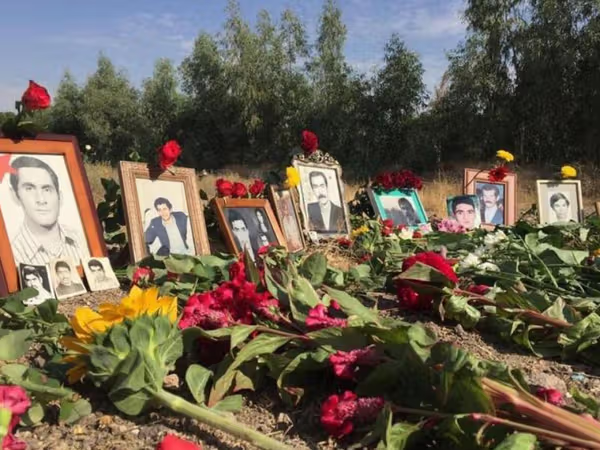On December 19, 2023, a Swedish appeal court delivers its verdict, a crucial step towards accountability for a dark chapter in recent Iranian history.
The case involves Hamid Nouri, a key figure implicated in the 1988 massacre of Iranian political prisoners, a massacre that left thousands dead and many more scarred for life. While the appeal court's verdict is still pending, it's worth reflecting on the trial's significance and what it represents for justice, human rights, and the pursuit of accountability.
The 1988 massacre of political prisoners in Iran is a tragedy that should never have happened. It is a stain on the pages of history, a moment when the world should have stood up and cried out against the unspeakable atrocities that took place. But justice was elusive for decades. Families of the victims longed for answers, and survivors carried the physical and emotional scars of that horrendous period.
Fast forward to November 2019, when the Swedish authorities arrested Hamid Nouri, a man alleged to have played a pivotal role in the 1988 massacre. Sweden's decision to act under the principle of universal jurisdiction was a beacon of hope for those who had waited for justice for 35 years. It was a reminder that justice knows no borders, that human rights are universal, and that those responsible for heinous crimes must be held accountable, no matter where they hide.
The subsequent trial in Sweden was not just a legal proceeding; it was a message to the world that the pursuit of justice and accountability remains steadfast even decades later. It demonstrated the power of international law to reach across time and distance to hold individuals accountable for crimes against humanity. The trial was a symbol of solidarity with the victims and survivors of the 1988 massacre, their pain acknowledged, and their voices heard.
As we await the verdict from the Swedish appeal court, we should take a moment to commend Sweden for its commitment to justice, human rights, and the rule of law. By conducting this trial, Sweden has exemplified the principles of international justice and demonstrated that no one is above the law. It has shown that nations can play a crucial role in holding perpetrators accountable for their actions, even when their crimes were committed in a different time and place.
We also thank the Swedish government for its dedication to upholding human rights. By pursuing this case, Sweden has sent a clear message to the international community that justice is not a mere concept but a tangible, achievable goal. It has provided a glimmer of hope to countless victims of human rights abuses worldwide, reminding them that they, too, can seek justice.
The road to justice can be long and arduous, but it is a journey worth embarking upon. As the appeal court's verdict approaches, let us remember that it represents not just a legal outcome but a triumph of humanity over cruelty. Regardless of the final judgment, Sweden's commitment to this trial is a testament to the enduring importance of accountability and justice. It is a beacon of hope for all those who have suffered and reminds us that the pursuit of justice is a cause worth fighting for.
In the end, whether the appeal court confirms the life sentence or not, one thing is certain: December 19, 2023, will be a day to remember, not just for Sweden but for all those who believe in the power of justice and accountability to heal wounds, restore dignity, and build a more just and humane world.
This opinion article was submitted by Laleh & Lawdan Bazargan, sisters of Bijan Bazargan one of the victims of the 1988 Massacre, and Plaintiffs in Hamid Nouri’s Case.
Opinion expressed by the authors are not necessarily the views of Iran International.
